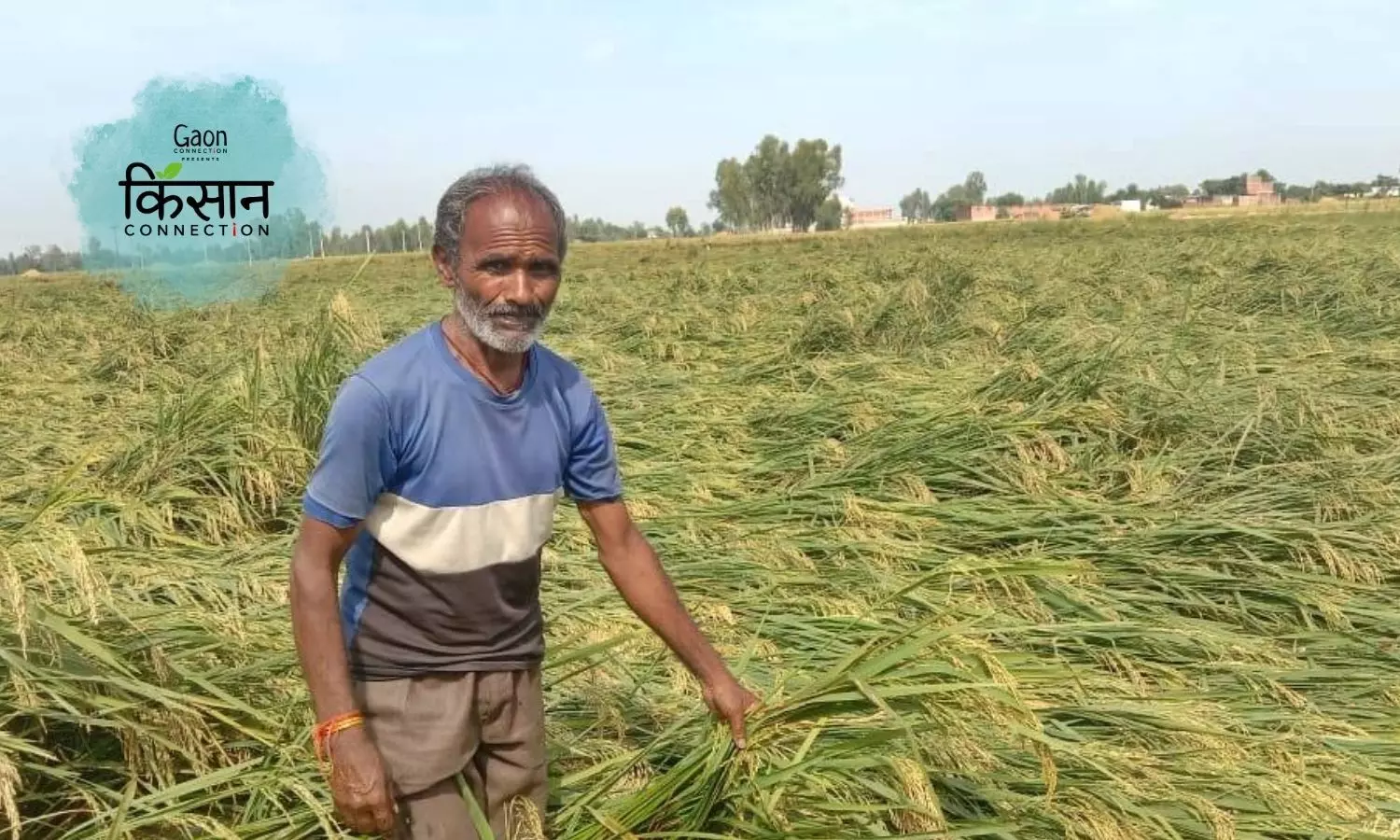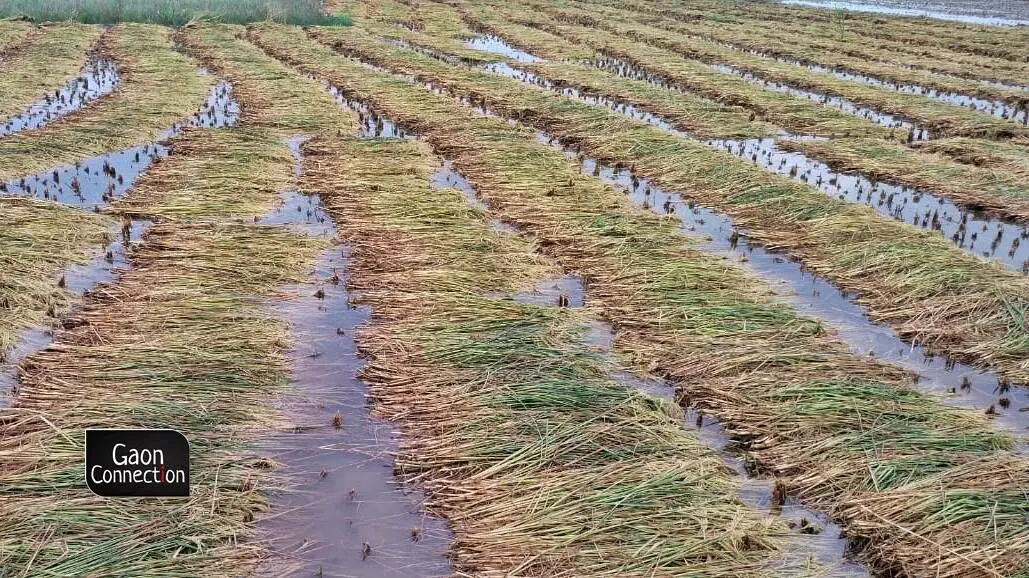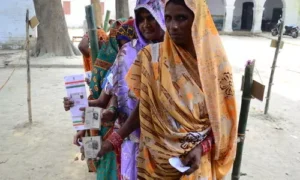Barabanki & Sitapur
Thousands of farmers in Uttar Pradesh did not get a wink of sleep on the night of 16 October. They stayed awake but helpless as they waited for daybreak to assess the damage to their paddy crop in the unexpected and torrential rains.
Janardan Verma, a 50-year-old farmer from Barabanki district, went to inspect his 10 bighas [2.5 hectare] of land the morning after the storm to find one third of his standing crop gone.
“First there was inadequate rainfall when I sowed paddy in July-August. I spent twice the amount of what I should have on irrigating my lands. I spent Rs 20,000 on the diesel pumps. My expenses on pesticides increased because infestations increase if there is insufficient rain and the temperatures are high. And now, this,” he told Gaon Connection.
Also Read: The man who owns 435,000 sq ft of land may not have rice to eat this year
Heavy rainfall damaged ready-to-harvest paddy crops across the state. According to the Economic Survey Report 2022-23, Uttar Pradesh produced 15.27 million tonnes of rice and was only behind West Bengal which recorded a production of 16.76 million tonnes of rice.

“I shouldn’t have cultivated paddy at all. My only hope now is that I can recover the money I spent on it, there’s no question of profits at all,” Verma added.
As per the India Meteorological Department [IMD], Barabanki recorded a rainfall of 13.5 millimetres [mm] from 8:30 am on October 16 to 8:30 am on October 17. This precipitation is 3,281 per cent more than the normal rainfall [0.4 mm] for the distinct. The Lucknow centre of IMD had issued alerts for thunderstorm, rainfall and squalls for October 16 and October 17. Some farmers said they had received message alerts on their mobile phones but could do little about it.
Also Read: Thirsty for more: Next to no rains in eastern UP, leave both paddy farms and cattle parched
“We do not have the technology to forecast weather but once we receive such alerts from IMD, we pass it on to the farmers as much as we can. We get the announcements broadcast on radio stations or try to send announcers to the villages who use loudspeakers to alert the farmers,” Rajit Verma, the agricultural officer in Barabanki told Gaon Connection.
Meanwhile, in Ayodhya district, Anil Verma, a farmer and district leader of Bhartiya Kisan Union Tikait, told Gaon Connection that the heavy rainfall would hamper the sowing of the winter crops as well.
“There is too much moisture in the soil now. There are fields which are submerged in water. It will take a long while to drain the fields and make them ready for the rabi [winter] crops like maize and wheat. The late sowing of these crops will also affect their productivity,” Anil Verma told Gaon Connection.

Some farmers had already harvested their crop but they are in danger of rotting if not dried adequately before being transported to the nearest crop procurement centre.
Mohanlal, a farmer from Bahraich’s Barvaliya Bibipur village was one such farmer. His paddy harvest is at the risk of rotting away in water if it’s not dried at the earliest.
“How do I dry it? There is no facility to dry the produce. The paddy seeds will start germinating soon and the grain will be ruined. I had harvested half of my crop spread over six bighas of land,” worried Mohanlal, a farmer from Barvaliya Bibipur village in Bahraich. “Not only is my standing crop destroyed but also the crop which was harvested and was lying out to dry is about to rot,” he told Gaon Connection.
“The paddy crop has flattened and if the weather doesn’t improve in the next few days, my entire crop of five bighas will be ruined. I am praying for sunlight in the next few days for my paddy to dry off,” Shiv Prakash Singh, a resident of Chaandpur village in Sitapur district, told Gaon Connection.
“The storm was so great that three trees on my field fell in the rain,” he added.
Hail storms have devastated the farm of Rahul Mishra, a paddy farmer from Kullahi village in Hardoi district. “The grains have fallen from the standing stalks,” he told Gaon Connection. Those who were able to sow their crops on time in July have suffered the heaviest losses because their crop had ripened,” he said.




















